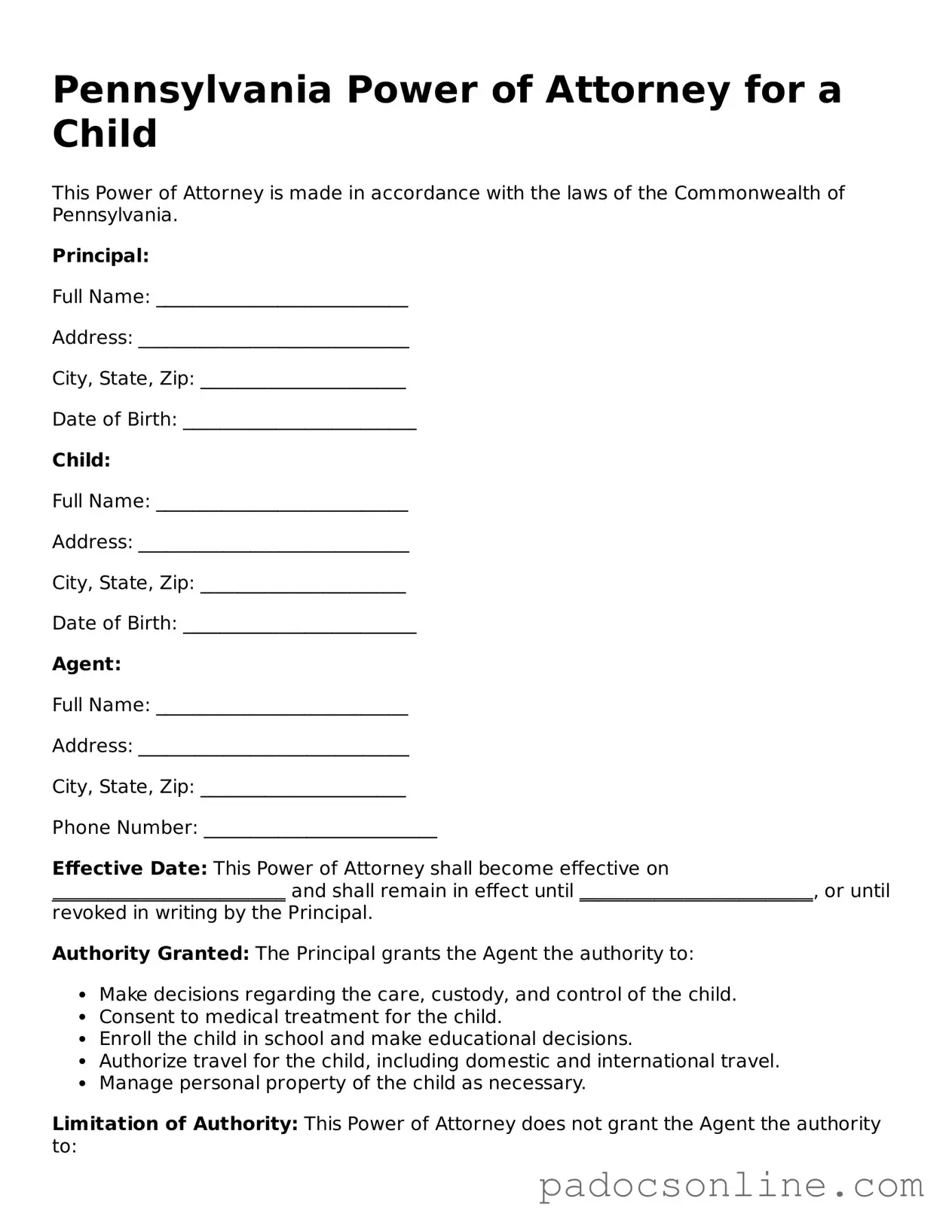When filling out the Pennsylvania Power of Attorney for a Child form, individuals often encounter several common mistakes that can lead to complications. One frequent error is failing to provide accurate and complete information about the child. This includes the child’s full name, date of birth, and any relevant identification numbers. Inaccuracies can create confusion and may delay the legal authority granted through the document.
Another mistake involves not clearly identifying the agent or person who will act on behalf of the child. It is essential to include the agent's full name, address, and contact information. Omitting any of these details can render the document less effective, as it may lead to disputes over who has the authority to make decisions regarding the child’s welfare.
Many individuals also overlook the necessity of specifying the powers granted to the agent. The form allows for a range of powers, from making educational decisions to managing healthcare. If these powers are not explicitly stated, the agent may not have the authority to act in critical situations, which can compromise the child's well-being.
Additionally, failing to sign and date the form correctly is a common pitfall. Both the parent or legal guardian and the agent must sign the document. Without proper signatures, the Power of Attorney may not be recognized legally, leaving the child without the intended protections.
Another mistake is neglecting to have the document notarized. In Pennsylvania, notarization is a requirement for the Power of Attorney for a Child form to be legally binding. Skipping this step can invalidate the document, rendering it ineffective in the eyes of the law.
Lastly, individuals may forget to keep copies of the completed form. Once the Power of Attorney is executed, it is crucial to distribute copies to all relevant parties, including the agent, schools, and healthcare providers. Without these copies, there may be confusion or delays when the agent needs to act on behalf of the child.
